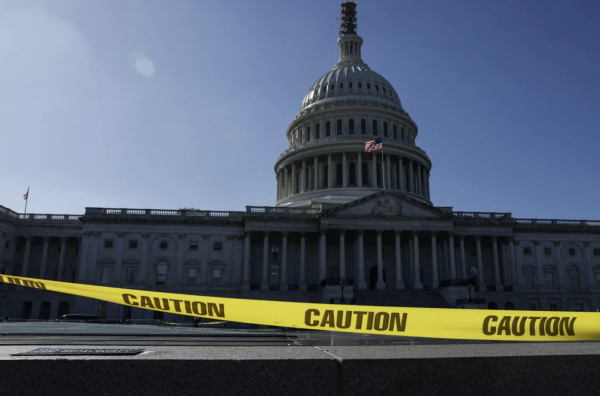An argument for political moderates
When my sister returned home from college for a brief family dinner for my father’s birthday, she began to fill the conversation with expressions of great extremism. In an achingly cliche turn of events, she had left home a thoughtful and inquisitive student and had returned home a wildly extreme, politically avid college kid. She recited sentiments of the urgency to act against anyone threatening rights with a great fervor. The more she talked about her plans to throw bricks (yes, literally), the more the panic rose in my chest. While her views landed about as far as you could reach across the political spectrum, the methods she spoke of landed her in the same sector of people she was trying to fight against: extremists. I argued that the rabid plan of attack she was so excited about would only distract her opponents from the issue at hand and prevent any actual progress. She argued that I wasn’t taking a strong enough stand.
Our current political playing field is a breeding ground for extremism. Every evaluation of elections, or bills being worked on, uses new vocabulary dancing around the increasing polarization of our government. Following Donald Trump’s election, membership of “Antifa” and other alt-left extremist groups skyrocketed. Alt-right “think tanks” and news pages celebrated their increasing number as well. Both of these groups took to the streets in great numbers and participated in violent protests for their own beliefs, often getting in physical altercations with others. While listening to NPR on my ride home, I hear more and more about the House and the Senate’s inability to “work across the aisle.” Our government shut down for a few days because of that. Even in our everyday social interactions, political discussions have become polarizing. Conversations deemed “too political” are avoided at all costs and shunned as being “inappropriate.” While I feel deeply the ferocity of the issues we are facing today, and often am excited by the same fears and anxieties that nothing is being done, this increasingly steep bimodal approach frightens me. If we become so invested in what makes the enemy our enemy, what is to stop the void between us from growing to become irreconcilable?
The idea of extremist groups, as far as I comprehend, is that one side must win out entirely in order for our nation to progress. But that total victory projection is mistaken. Let me oversimplify things for a moment. If I set out to solve a problem, like building a spaceship to reach Jupiter, I would need some people to help me out. It would probably be beneficial to have an idealist to draw up grand plans and inspire confidence in an unlikely outcome. But in order to actually take off, I would need a conservative money-minded business person. While the problems we face in the present are much broader and more complex than even rocket science, we have to realize that we can only progress together. There will not be one winner and there should not be. The energy spent on fighting each other only detracts from the energy that could be spent collaborating.
My concern for my sister was that her actions would take away from the goals at hand: to solve the issues that the people and places of our nation are facing. The acts of extremist groups to turn to violence degrades our problem-solving abilities down to that of Homo sapiens. I’m not aiming this at a specific wing of politics. Personally, I find Antifa, the militant “anti-fascist” group, equally as unhelpful as those chanting “blood and soil” in white supremacist rallies in Charlottesville earlier last year. Peaceful protest and demonstration has led a multitude of leaders to change the course of history. Violence? Those problems and conflicts are only ever solved after the troops are settled down, ceasefires have been agreed upon, and the parties involved sit down at the table to talk peace. Sure, violent “protests” will get people’s attention. But will they make you want to come to the table with them?
Another argument pushed by people like my sister is that violence is the only option. When people are facing loss of human rights that are not being addressed by those who are supposed to look out for them, people rightfully feel a great sense of urgency. I am writing this column for publishing in the Bi-Line. Thus, you, the reader, hold a level of privilege that many in our nation do not. Regardless of skin color or household income, you have the privilege of getting an education. My hope and plea is that you use this privilege not to fight others but to gain the skills to bring others to the table.
The notion that circulates in our society currently that differences in political opinions are irreconcilable ones is a toxic one. People have and continue to change their minds, change their opinions, and change their outlooks.
But if we waste all of our resources and energy on setting out to violently revolt against our supposed enemy, how would we ever be able to give each other the chance to change those opinions? In the future, you will be the brightest person sitting in the seat of greatest power and privilege in our society. You are our best shot at fixing things. It is easy to throw a brick and run because it does not require you to engage your brain. But you are better. Reach out across the aisle and invite someone to your table.
You might be surprised that they are human.




